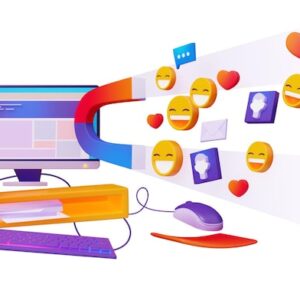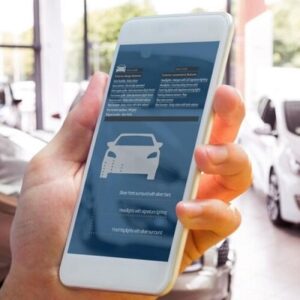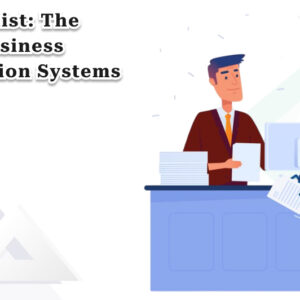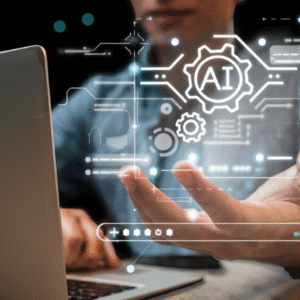Businesses are using AI-powered chatbots to improve customer experience, expedite processes, and spur expansion as digital transformation picks up speed across industries. The advanced, data-driven enterprise AI chatbots of today are far from being straightforward question-and-answer bots; they grow with organizational requirements and seamlessly interact with current business systems.
This guide explores everything you need to know about AI chatbot development solutions for enterprises — including features, benefits, use cases, implementation strategies, and how to choose the right development partner in 2025.
What Are AI Chatbot Development Solutions for Enterprises?
Custom-built, scalable conversational AI systems designed to automate interactions with clients, staff, or partners are referred to as AI chatbot development solutions for businesses. These bots deliver intelligent, context-aware discussions across several digital channels by utilizing technologies like Natural Language Processing (NLP), Machine Learning (ML), and even Generative AI.
Enterprise solutions, which are designed especially for large enterprises, are built for high performance, security, integration, and personalization, in contrast to standard chatbot tools or templates.
Key Features of Enterprise AI Chatbot Solutions
Enterprise-grade chatbot development goes beyond basic functionality. Here are the key features that define a robust AI chatbot solution for large organizations:
1. Advanced Natural Language Processing (NLP)
- Understands user intent, context, and sentiment
- Handles multilingual interactions
- Supports voice and text-based communication
2. Custom Integrations
- Connects with CRMs, ERPs, HRMS, and legacy enterprise systems
- Accesses and updates business data in real-time
- Enables seamless handover to live agents
3. Omnichannel Deployment
- Functions across websites, mobile apps, social media platforms, messaging apps (WhatsApp, Messenger), and internal systems like Slack or Teams
4. Enterprise-Level Security
- Data encryption at rest and in transit
- Role-based access control
- Compliance with GDPR, HIPAA, SOC 2, etc.
5. Scalability and Performance
- Handles millions of conversations concurrently
- Optimized for high availability and minimal downtime
- Built on cloud infrastructure for global scalability
6. Analytics and Insights
- Tracks KPIs such as response time, user satisfaction, and resolution rate
- Identifies user behavior trends and areas for improvement
- Offers chatbot training recommendations using performance data
Benefits of AI Chatbot Development Solutions for Enterprises
Adopting an enterprise chatbot solution brings tangible advantages across customer service, sales, HR, IT, and more.
Enhanced Customer Experience
- 24/7 support with instant, accurate answers
- Personalized recommendations based on customer profiles and history
- Faster query resolution with zero wait time
Cost Reduction
- Cuts operational costs by automating repetitive queries
- Reduces dependency on large support teams
- Improves agent productivity with hybrid bot-human support
Business Process Automation
- Automates internal workflows (e.g., employee onboarding, IT ticketing)
- Reduces manual data entry and task duplication
- Accelerates approval processes with real-time updates
Increased Conversion Rates
- Captures leads directly through chat interfaces
- Qualifies prospects using intelligent questioning
- Guides users through sales funnels more efficiently
Real-Time Decision Making
- AI-driven insights from chat logs and behavior data
- Informs product, marketing, and customer service strategies
- Enables adaptive content delivery based on live user behavior
Top Enterprise Use Cases for AI Chatbot Solutions
AI chatbot development is transforming how large organizations operate across departments. Here are the most common enterprise use cases:
1. Customer Support Automation
Resolve high volumes of customer queries without delay — from order tracking and FAQs to troubleshooting and returns.
2. Sales and Lead Generation
Capture leads on websites, qualify them using smart flows, and route them to the right sales teams or tools (like Salesforce).
3. Employee Helpdesk
Provide real-time support for HR, IT, and operations-related queries within internal systems like Microsoft Teams or Slack.
4. E-commerce Assistance
Offer personalized product recommendations, abandoned cart nudges, and checkout support.
5. Healthcare Triage and Scheduling
Assist patients with appointment booking, symptom analysis, and medical reminders — while maintaining HIPAA compliance.
6. Banking and Financial Services
Enable self-service for tasks like balance checks, loan application status, and fraud detection alerts.
How to Implement AI Chatbot Development Solutions in Your Enterprise
Step 1: Define Business Objectives
Clarify what you want the chatbot to achieve. Common goals include reducing support costs, improving customer engagement, or automating internal workflows.
Step 2: Choose the Right Platform and Channels
Identify where your users interact — whether it’s your website, app, WhatsApp, or internal portals — and ensure the chatbot is deployed on those channels.
Step 3: Select the Right Development Partner
Partner with a company experienced in enterprise AI chatbot development. Look for:
- A proven track record across industries
- Strong technical capabilities (NLP, ML, integrations)
- Robust security protocols and compliance adherence
- Scalable cloud infrastructure
Step 4: Design and Train the Bot
Develop chatbot flows, train the NLP engine on relevant use cases, and refine conversation scripts for clarity and tone.
Step 5: Integrate and Launch
Connect the chatbot to your backend systems, CRMs, or databases. Test thoroughly, launch in phases, and monitor performance post-deployment.
Step 6: Monitor, Optimize, and Scale
Use performance analytics to improve bot responses, expand capabilities, and train the chatbot with new data for better accuracy over time.
Choosing the Right AI Chatbot Development Company
A reliable enterprise chatbot partner should offer:
- End-to-end development (from strategy to deployment)
- Custom UX/UI and conversational design
- AI model training and ongoing optimization
- Integration with your existing tools and data pipelines
- SLA-backed support and chatbot maintenance
Evaluate their portfolio, client reviews, and industry-specific experience before finalizing.
Future Trends in Enterprise AI Chatbot Development (2025 & Beyond)
Enterprise chatbot development is evolving quickly. Here’s what to expect:
- Generative AI integration for more human-like conversations
- Voice-enabled chatbots for smart devices and accessibility
- Emotion and intent detection to guide empathetic responses
- AI-powered analytics to drive strategic business decisions
- Hyper-personalization using user behavior, preferences, and real-time data
Staying ahead of these trends ensures your enterprise remains competitive and customer-centric.
Conclusion
Enterprises can no longer afford to ignore AI chatbot development solutions; they are now an essential part of contemporary business strategy. Businesses may use intelligent chatbot systems that improve customer experience, expedite procedures, and generate quantifiable return on investment with the correct planning, development partner, and integration approach.




